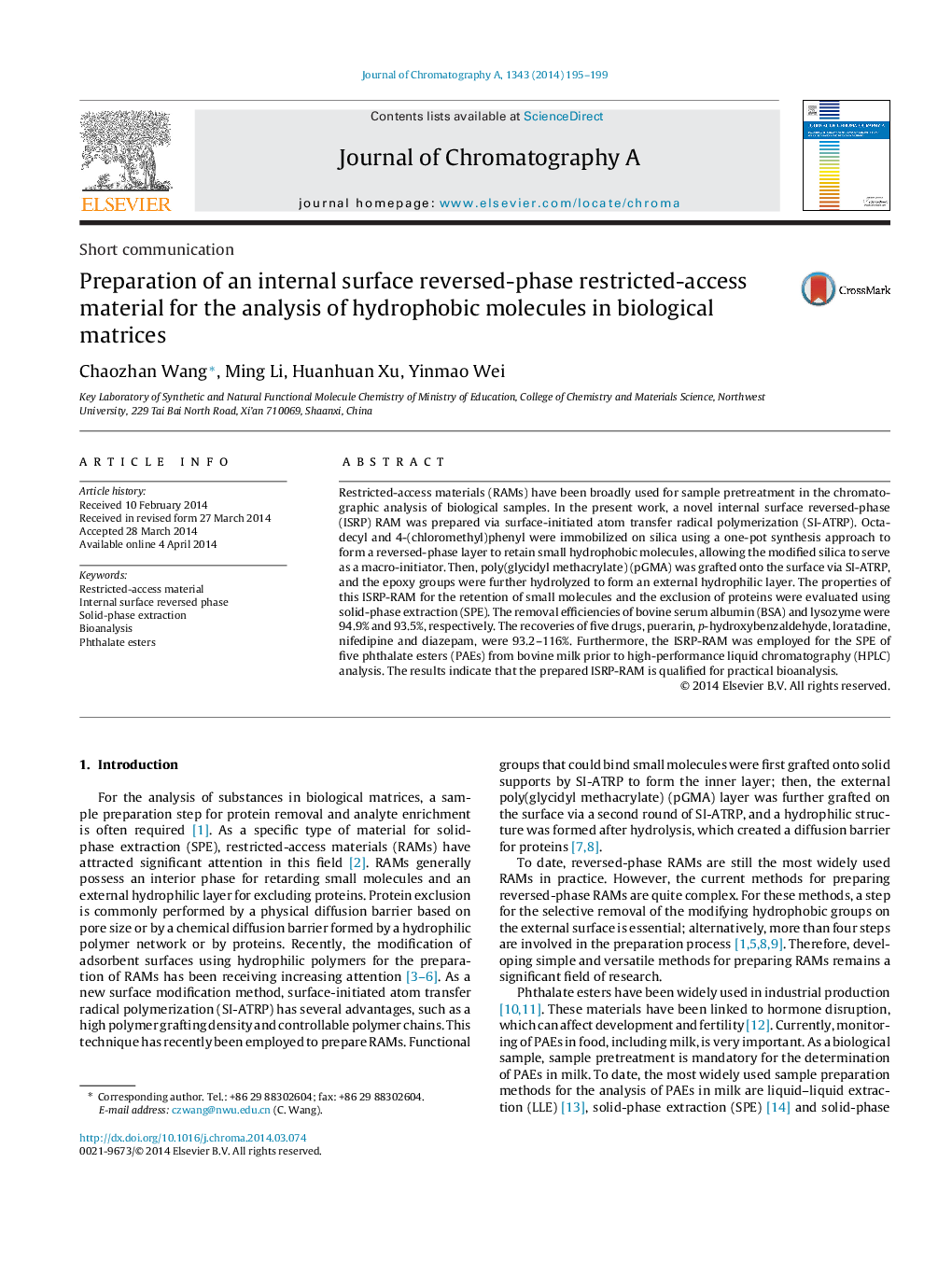| Article ID | Journal | Published Year | Pages | File Type |
|---|---|---|---|---|
| 1200067 | Journal of Chromatography A | 2014 | 5 Pages |
•A novel method for preparation of reversed phase restricted access material (RAM).•The preparation method is simple and versatile.•The RAM has very good ability to retain small molecules and to exclude proteins.•RAM-SPE–HPLC method for detection of phthalate esters in milk was established.
Restricted-access materials (RAMs) have been broadly used for sample pretreatment in the chromatographic analysis of biological samples. In the present work, a novel internal surface reversed-phase (ISRP) RAM was prepared via surface-initiated atom transfer radical polymerization (SI-ATRP). Octadecyl and 4-(chloromethyl)phenyl were immobilized on silica using a one-pot synthesis approach to form a reversed-phase layer to retain small hydrophobic molecules, allowing the modified silica to serve as a macro-initiator. Then, poly(glycidyl methacrylate) (pGMA) was grafted onto the surface via SI-ATRP, and the epoxy groups were further hydrolyzed to form an external hydrophilic layer. The properties of this ISRP-RAM for the retention of small molecules and the exclusion of proteins were evaluated using solid-phase extraction (SPE). The removal efficiencies of bovine serum albumin (BSA) and lysozyme were 94.9% and 93.5%, respectively. The recoveries of five drugs, puerarin, p-hydroxybenzaldehyde, loratadine, nifedipine and diazepam, were 93.2–116%. Furthermore, the ISRP-RAM was employed for the SPE of five phthalate esters (PAEs) from bovine milk prior to high-performance liquid chromatography (HPLC) analysis. The results indicate that the prepared ISRP-RAM is qualified for practical bioanalysis.
